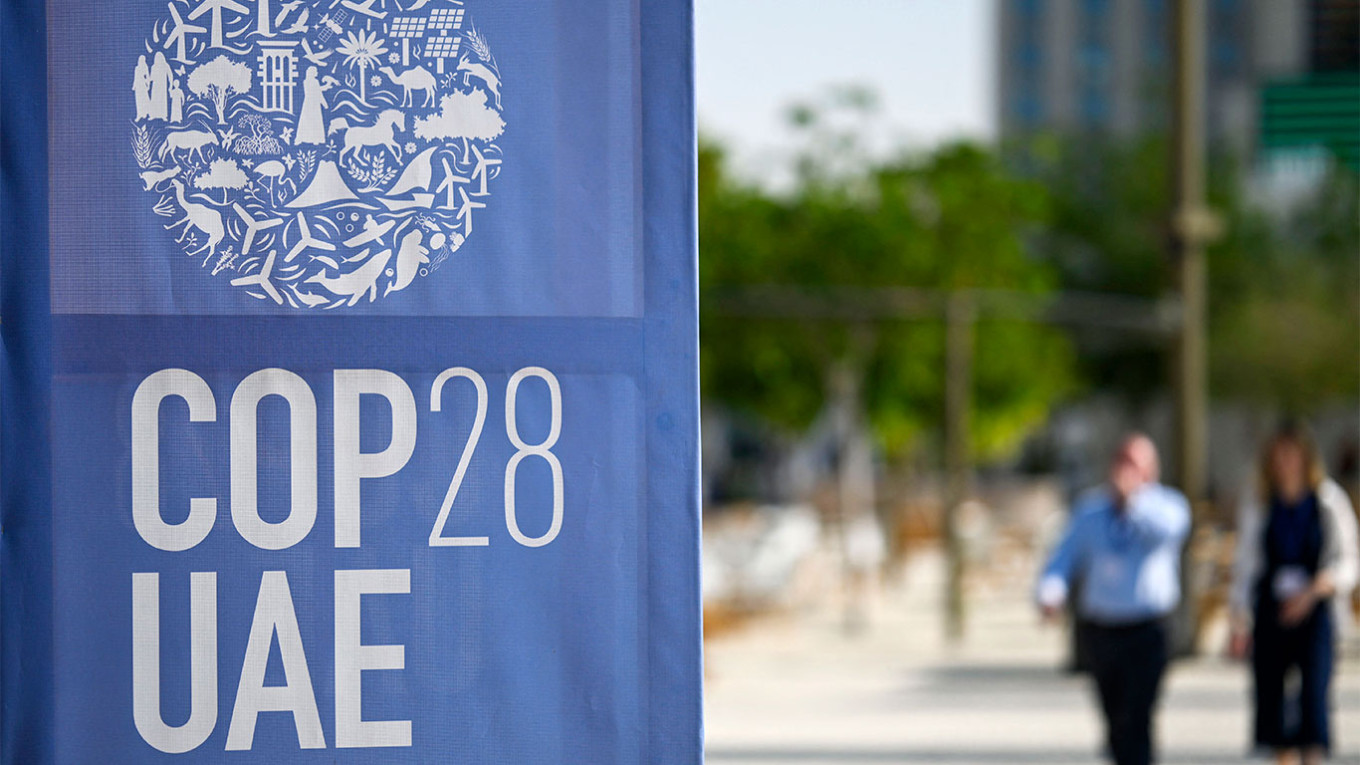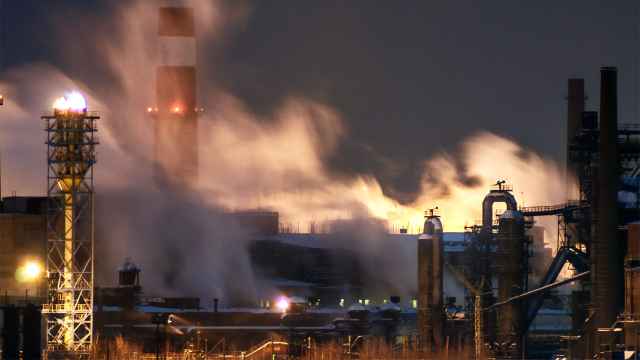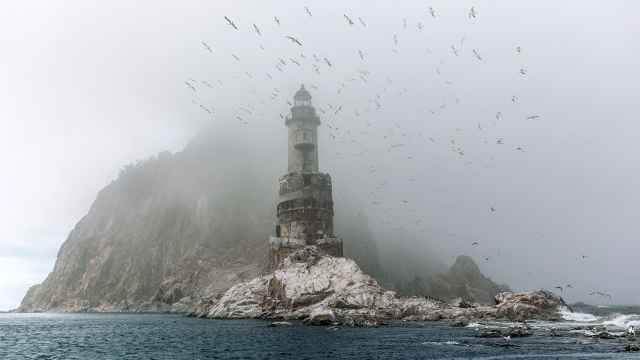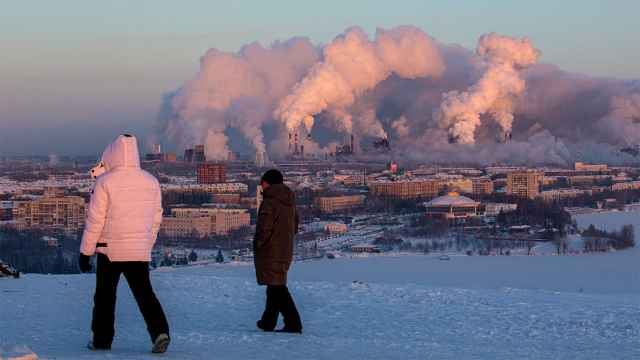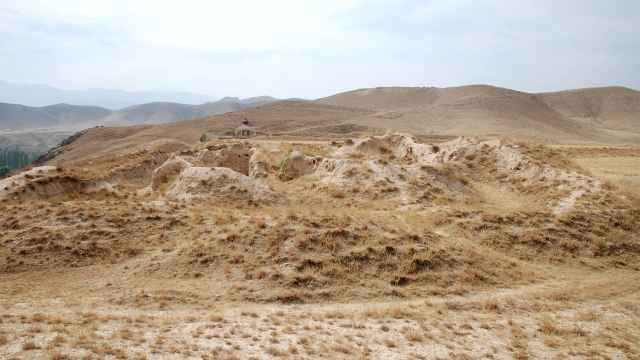As tens of thousands of delegates gathered in Dubai for the UN’s COP28 climate conference Thursday, negotiators from around the world will once again struggle to agree on how to collectively address the climate crisis.
For Russia, which remains under harsh Western sanctions and bogged down in its 21-month war on Ukraine, the conference will serve as a test of whether its voice can still be heard in the global climate dialogue as the planet nears a tipping point of heating.
“Disputes are already beginning. …Unfortunately, the world has not achieved the goals it set for itself, so COP is expected to be very challenging,” President Vladimir Putin’s special representative on climate change Ruslan Edelgeriev said earlier this month.
“There will be enormous pressure from the public on us,” he added.
In addition to Edelgeriev, the official Russian delegation to COP28 includes several federal ministers and deputy ministers, a deputy prime minister and dozens of officials from government agencies.
Along with rising geopolitical tensions, wars in several parts of the world and economic uncertainty, the climate crisis leaves no chance of becoming less of a headache for world leaders.
The World Meteorological Organization has warned that the world might breach 1.5 Celsius of warming for at least one year between 2023 and 2027. Crossing this threshold will bring increasingly devastating impacts to many parts of the world, scientists say.
The 1.5 C temperature target is a key goal of the 2015 Paris Agreement, an international pledge to limit the global temperature rise to 1.5 C above pre-industrial levels while keeping the door open to 2 C if signatories fall short of their more ambitious goal.
As the world persistently misses both goals, heading for a 2.5-2.9 C temperature increase by the end of the century, COP28 is expected to bring progress on several fronts.
These include the review of countries’ current results in mitigating human-induced climate change (The Global Stocktake) and providing funding to developing nations that are disproportionately bearing the brunt of climate change.
During the two-week conference, Russia plans to speak out against the “politicization” of climate change efforts amid a "challenging geopolitical situation," Natural Resources Minister Alexander Kozlov said Wednesday, an apparent reference to Russia’s alienation from Western countries over Ukraine.
“Countries should focus exclusively on climate issues,” Kozlov said. “The agenda of the meeting is extensive, and the Russian delegation will participate in all discussions.”
The Russian delegation plans to cover a wide range of topics during sessions organized by state agencies, businesses and scientific institutions, including climate finance, energy transition, nature-based solutions and nuclear energy.
Ahead of COP28, Edelgeriev said Russia fully adheres to its climate commitments, pointing to the country’s goal of reaching carbon neutrality by 2060. Moscow also claims to have already achieved its target to reduce emissions of planet-warming gases by 30% from 1990 levels by 2030 — by cutting emissions by over 50% in 2020.
Meanwhile, an independent analysis described Russia’s climate action as “critically insufficient,” with policies that “indicate no real commitment to curb emissions.” The country ranks among the top five major global emitters, with its share in both historic and current emissions at about 5%.
As the UN climate conference usually revolves around who is more responsible for what, COP28 is likely to see new, politically tinged disputes — some of which could attract Moscow’s active involvement.
A letter obtained by Reuters in June revealed that Russia is attempting to block European Union countries from hosting next year's UN climate negotiations, arguing that it would jeopardize their impartiality.
In September, Moscow and its allies threatened to block the adoption of a political declaration at the UN Sustainable Development Goals summit in New York, arguing that sanctions undermine efforts to achieve these goals.
While it’s yet to be seen whether Russia will create any problems at the conference in Dubai, some issues may be non-negotiables for Moscow.
One of them concerns phasing out fossil fuels. In a document submitted to UNFCCC this September, Russia said it opposes “any provisions or outcomes that somehow discriminate or call for phase-out of any specific energy source or fossil fuel type.”
This uncompromising stance by Russia, one of the world’s largest fossil fuel producers, contradicts the EU’s recent push for a global deal to phase out coal, oil and gas at COP28.
UN countries, including Russia, in 2021 took the first tentative step toward ending the fossil-fuel era with the COP26 call to scale up efforts for “the phasedown of unabated coal power and phase-out of inefficient fossil fuel subsidies.”
Scientists warn of the urgent need to drastically restrict fossil fuel use by 2030 and eliminate it almost entirely by 2050 in order to stay below the 1.5 C mark.
But achieving progress in this regard can be challenging, given that certain countries continue to heavily rely on their fossil fuels of choice, with China and India preferring coal and the United States and Russia preferring oil and gas, Vasily Yablokov from the Coalition for Sustainable Development of Russia and a UN climate negotiations observer told The Moscow Times.
Instead, Moscow offers the approach of so-called “technological neutrality,” which it enshrined in its Climate Doctrine released one month ahead of COP28. Defined as an "impartial approach to the use of technologies aimed at mitigating anthropogenic impact on the climate,” Russia advocates this principle at international platforms to promote nuclear energy.
Besides nuclear power, the principle of technological neutrality might also encompass large hydropower and a shift in focus from emission reduction to absorption by ecosystems, experts say.
“Of course, ideally, this is the first and foremost action that all countries should take: to abandon coal, oil, and gas,” Yablokov said.
“But Russia has declared that it refuses to phase out fossil fuels and will advocate for more personalized solutions — such as our 'favorites,' the absorption by forest ecosystems or the development of nuclear energy,” he said.
Other solutions are even more exotic. Russia plans to showcase its Pleistocene Park experiment, which aims to restore Arctic ecosystems by reintroducing ancient wildlife. Researchers hope this will help slow the thawing of permafrost and the release of potent planet-warming gases frozen within it.
“In essence, Russia will advocate for anything in order to leave the main portion of its emissions untouched and somehow report that everything is going according to plan," Yablokov said.
“Therefore, it seems to me that Russia's goal [at COP28] may be to blur the agenda with other solutions that are not fundamental to addressing the climate problem.”
During COP28, Russia intends to persuade the world that it fully complies with its climate commitments, independent renewables expert Tatiana Lanshina told The Moscow Times.
The country might also try to promote its nuclear power plants, portray itself as the world’s climate donor because of its vast forest area and even attempt to use COP28 to call for sanctions relief.
“All of Russia's initiatives aimed at reducing greenhouse gas emissions are of a simulated nature,” Lanshina said.
“If before the war in Ukraine there was still hope that the simulation of climate policy could turn into real action due to economic incentives — such as the EU’s Carbon Border Adjustment Mechanism or prospects of international cooperation — now there are no such hopes,” she said.
However, Russia’s greenhouse gas emissions have not risen dramatically in recent years due to economic reasons. And though the country’s contribution to global totals is significant, it is still overshadowed by larger emitters like China or the U.S., Yablokov said.
“These countries are also heavily dependent on fossil fuels, of course. However, when it comes to clean energy, they are certainly trying to outpace the rest of the world — in contrast to Russia,” he said.
Climate finance, another issue that will dominate COP28, might be less of a nerve point for Moscow since it is not obligated to provide financial aid to developing nations for dealing with climate change.
Delegations are expected to wrestle over who and how should organize funding to low-income countries for the consequences of climate change which surpass their adaptation capacities (“loss and damage”).
Russia may find itself “outside of these disputes,” said Alexei Kokorin, an international expert at the Regional Environmental Center for Central Asia, during a scientific seminar in Moscow this month.
“Socio-economic issues are what this conference is all about, and it is extremely important for developing countries receiving climate financing... It is also quite important, of course, for those obligated to provide funds,” Kokorin said.
“However, for some countries, the so-called voluntary donors, including Russia, which are not recipients [of climate finance], this conference is significantly less important."
A Message from The Moscow Times:
Dear readers,
We are facing unprecedented challenges. Russia's Prosecutor General's Office has designated The Moscow Times as an "undesirable" organization, criminalizing our work and putting our staff at risk of prosecution. This follows our earlier unjust labeling as a "foreign agent."
These actions are direct attempts to silence independent journalism in Russia. The authorities claim our work "discredits the decisions of the Russian leadership." We see things differently: we strive to provide accurate, unbiased reporting on Russia.
We, the journalists of The Moscow Times, refuse to be silenced. But to continue our work, we need your help.
Your support, no matter how small, makes a world of difference. If you can, please support us monthly starting from just $2. It's quick to set up, and every contribution makes a significant impact.
By supporting The Moscow Times, you're defending open, independent journalism in the face of repression. Thank you for standing with us.
Remind me later.


